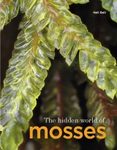![Bryophyte Biology Bryophyte Biology]()
Click to have a closer look
About this book
Contents
Customer reviews
Biography
Related titles
About this book
Bryophyte Biology provides an extensive overview of the hornworts, liverworts, and mosses; diverse groups of land plants that occupy a great variety of habitats throughout the world. This new edition covers essential aspects of bryophyte biology, from morphology, physiological ecology and conservation, to speciation, and genomics. Revised classifications incorporate contributions from recent phylogenetic studies.
Six new chapters complement fully updated chapters from the original book to provide a completely up-to-date resource. New chapters focus on the contributions of Physcomitrella to plant genomic research, population ecology of bryophytes, mechanisms of drought tolerance, a phylogenomic perspective on land plant evolution, and problems and progress of bryophyte speciation and conservation. Written by leaders in the field, this book offers an authoritative treatment of bryophyte biology, with rich citation of the current literature, suitable for advanced students and researchers.
Contents
Preface; 1. Morphology and classification of the Marchantiophyta Barbara Crandall-Stotler, Raymond E. Stotler and David G. Long; 2. Morphology and classification of the Bryophyta Bernard Goffinet, William R. Buck and A. Jonathan Shaw; 3. New insights into morphology, anatomy and systematics of hornworts Karen S. Renzaglia, Juan Carlos Villarreal A. and R. Joel Duff; 4. Phylogenomics and early land plant evolution Brent D. Mishler and Dean G. Kelch; 5. Mosses as model organisms for developmental, cellular and molecular biology Andrew C. Cuming; 6. Physiological ecology Michael C. F. Proctor; 7. Biochemical and molecular mechanisms of desiccation tolerance in bryophytes Mel J. Oliver; 8. Mineral nutrition and substratum ecology Jeff W. Bates; 9. The structure and function of bryophyte dominated peatlands Dale H. Vitt and R. Kelman Wieder; 10. Population and community ecology of bryophytes Hakan Rydin; 11. Bryophyte species and speciation A. Jonathan Shaw; 12. Conservation biology of bryophytes Alain Vanderpoorten and Tomas Hallingb#ck.
Customer Reviews
Biography
Bernard Goffinet completed his Ph.D. at the University of Alberta, Canada. As a research associate of Dr A.J. Shaw he pursued his interest in the phylogeny of mosses, with a special focus on the evolution of entomophily in the dung mosses. He joined the University of Connecticut in 1999, where he is an associate professor in Ecology and Evolutionary Biology. He has co-authored nearly 70 publications. His current research spans choroplast genome evolution in liverworts, the phylogenetic history of the new model taxon, Physcomitrella patens, as well as the evolution of multisymbiosis in lichen-forming fungi. A. Jonathan Shaw earned his Ph.D. in Botany from the University of Michigan. He was a Post-doctoral Associate at the Natural History Museum, Smithsonian Institution and in the Department of Botany, Duke University, before taking a faculty position in the Biology Department of Ithaca College in 1989. In 1996 he joined the Botany Department (now Biology) at Duke University, where he is currently a Professor. He serves as an Associate Editor for several scientific journals and as Chairman for the Board of Directors, Highlands Biological Station. He has published over 130 scientific papers and book chapters. His research interests include the systematics and phylogenetics of mosses and liverworts and population genetics of peat mosses (Sphagnum).
Edited By: Bernard Goffinet and A Jonathan Shaw
565 pages, 25 b/w photos, 57 figs, 23 tabs
'I strongly recommend this bryophyte book to biology students and botanists, and to anyone interested in bryophytes.' Journal of Plant Physiology



































